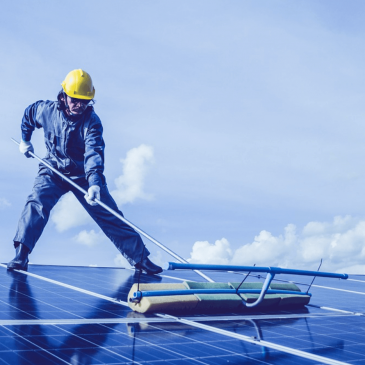What to Know Before You Buy Your Residential Solar Panels
Residential solar provides homeowners with incredible opportunities for saving money, reducing their carbon footprint, and enjoying reliable energy in turbulent times. In fact, solar holds so much promise that it can be all-too-easy for a homeowner to leap into it without doing their due diligence.
Having solar panels installed on your home can be an expensive project, but in most cases, it proves to be well worth it, by a landslide. However, there are some situations where a homeowner’s expectations might not be met simply because they didn’t do enough research or ask their solar installer the right questions.
In this post, you’ll learn more about what residential homeowners wished they knew before they purchased their solar panels, so you don’t make the same mistakes.
Solar Batteries Might Be Required
Solar panels convert the sun’s UV rays into usable energy. This means when the sun goes down, your solar panels stop producing energy. So, if you want to continue to enjoy clean solar energy in the evening hours, then you will need to have a battery storage system installed with your solar panels. This can increase the cost of installation by quite a bit, but the good thing is that solar battery costs can now be included in your Federal Solar Tax Credit application.
The other option you can consider is for your energy source to switch over to grid-generated energy in the evening. This will result in you getting an electric bill every month and putting your evening energy delivery in the hands of the nation’s unreliable, antiquated grid system.
Additional Roof Structural Support May Be Required
Depending on the age of your home, your roof may not be suitable for a solar panel system without additional structural support being installed in the attic. This will, of course, result in an additional cost, but one that is extremely necessary if you want your solar panels installed on your roof.
If you don’t want your roof to be messed with, then you can always opt for a ground-installed solar panel array if you have enough yard space to accommodate it. However, this may also impact your overall installation costs, so it is always best to discuss all your options with your installer.
Trees May Need to be Trimmed or Removed
If you have a towering tree on your property that you just love, then you will want to find out from your solar contractor if it will interfere with your solar panels’ efficiency because there is always the chance that the tree may need to be trimmed or removed if it is blocking the sun’s rays from hitting your solar panels. This will add to the cost of your installation and result in your favorite tree being altered or lost.
There Is More Than One Type of Solar Panel
In the past, most residential solar customers had just one type of solar panel available for use on their homes. But today, there are several different types of solar panels for homeowners to pick from, such as monocrystalline silicon panels, polycrystalline silicon panels, and even solar shingles. So, understanding what’s available will help ensure that the panels you choose are best for your budget, expectations, and your home’s curb appeal.
Building Permits Will Be Required
Every township has different rules and regulations, but just about all of them will require a homeowner to obtain one or more building permits before a solar system can be installed on their home. The problem is, these permits can be slow getting approved and in the worst cases, they could hold up your installation. So, if you are thinking about having a solar panel system installed on your home, make sure you check with your local township to find out what permits you’ll need. And apply for them early enough to help ensure that your installation can proceed on schedule.
Residential solar is flexible enough to provide just about any home with unbeatable benefits, but buyer’s remorse can be a real risk if your system doesn’t meet your expectations. Therefore, educating yourself is the best thing you can do to keep your expectations grounded in reality. Doing your own research is one of the most important steps in any successful residential solar installation, so take the time to do it and be sure to ask your contractor any question that comes to your mind. Then, when your solar system goes online, it will be everything you imagined it being.

